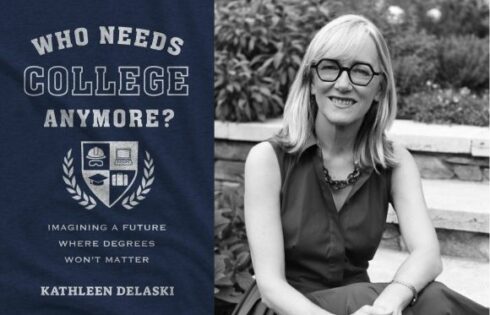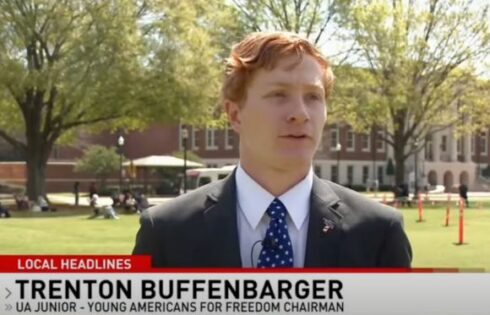
School also forbids ‘rumors’ and ‘embarrassing pictures’
As part of its code of conduct, a public university in Alabama prohibits its students from sending “harsh text messages,” a policy that has earned it the worst possible rating from a campus free-speech watchdog group.
The University of West Alabama’s Cyberbullying and Cyber Harassment Policy defines harassment as “conduct that disrupts the educational environment of the university.” Conduct that the university has defined as harassment includes “harsh text messages or emails, rumors sent by email or posted on social networking sites, and embarrassing pictures, videos, websites, or fake profiles.”
The policy provides several examples of “instances where social media can cause harm to the university or member of the UWA community,” though none of the examples includes “harsh text messages” or “rumors.”
The College Fix reached out repeatedly to university officials to learn more about the policy, including whether any students had ever been sanctioned by the school for sending a harsh text message. The school’s public relations department did not respond to several requests for comment; nor did its Vice President of Student Affairs Richard Hester.
Robert Upchurch, listed as a contact in the school’s Cyber Harassment Policy, also did not respond to a request for comment from The Fix.
The school’s speech policy garnered the lowest possible rating from the campus civil rights advocacy group the Foundation for Individual Rights in Education.
“The University of West Alabama’s ‘Cyberbullying and Cyber Harassment Policy Statement’ earns FIRE’s worst ‘red light’ rating because it is a clear and substantial restriction on constitutionally protected expression,” Laura Beltz, a policy reform program operator at FIRE, said in a statement.
“Online messages do not lose First Amendment protection simply because they’re subjectively viewed as harsh, embarrassing, or as an unverified rumor,” Beltz continued. “For example, a single tweet that criticizes the university administration would be punishable under this policy, but would typically be protected by the First Amendment.”
The foundation said that the policy should be “revised to provide a definition of cyberbullying and cyber harassment that tracks the Supreme Court’s standard for peer harassment in the educational setting.”
“That standard requires conduct to be so severe, pervasive, and objectively offensive that the individual is effectively denied equal access to the university’s resources and opportunities — far from a single harsh text or an embarrassing email. By revising the definition this way, the university can respond to conduct that prevents a student from receiving his or her education without infringing on protected speech,” Beltz said.
MORE: Many campuses maintain militant speech codes
MORE: You can speak your mind for one two-hour block a week at this university
IMAGE: Shutterstock.com
Like The College Fix on Facebook / Follow us on Twitter






Please join the conversation about our stories on Facebook, Twitter, Instagram, Reddit, MeWe, Rumble, Gab, Minds and Gettr.